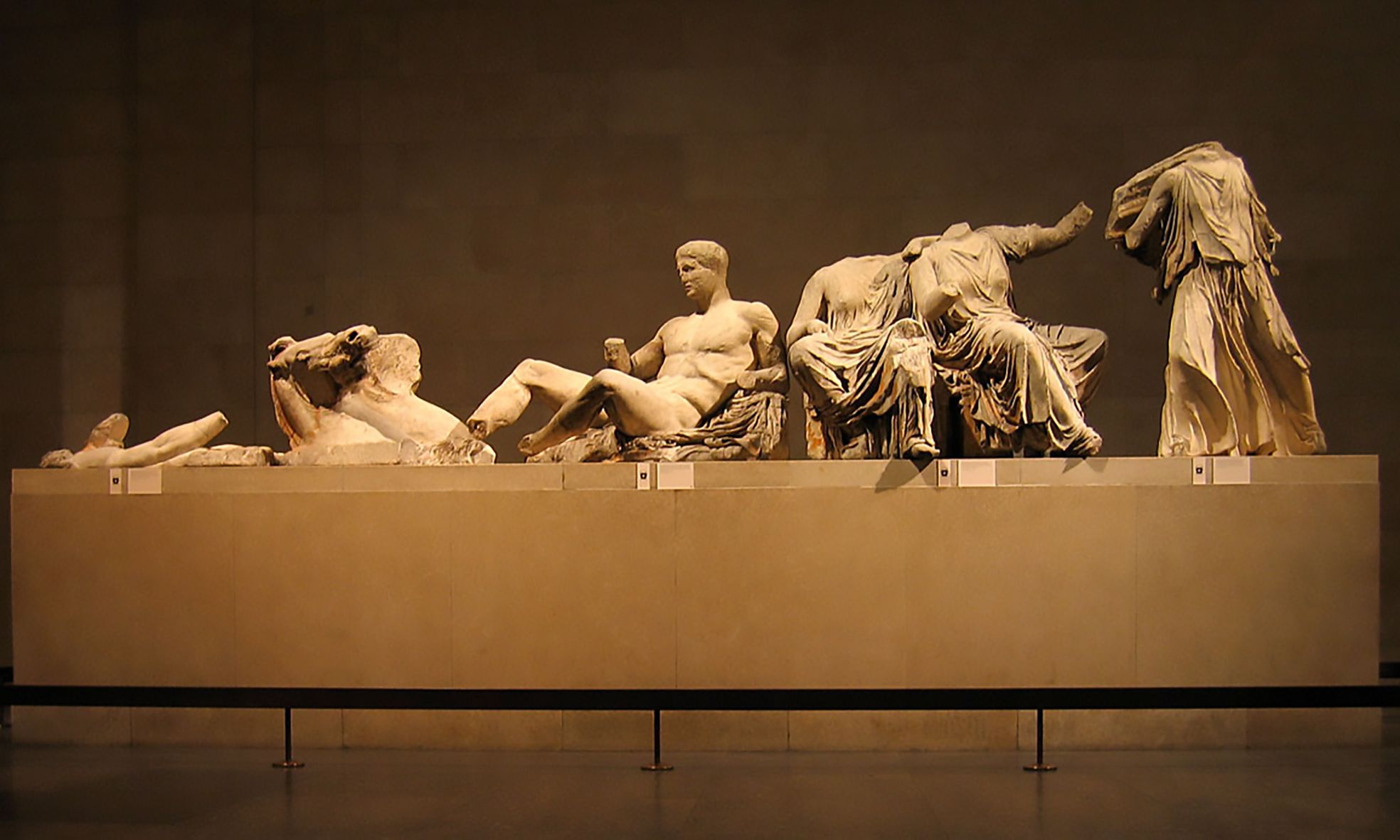The left hand group of surviving figures from the East Pediment of the Parthenon, held in the collection of the British Museum Photo: © Andrew Dunn
George Osborne, the British Museum's chairman, has confirmed he is continuing negotiations with the Greek government to devise a “hybrid” deal regarding the restitution of the Parthenon Marbles.
Osborne told BBC radio on 16 February that he is seeking what he hopes will be a mutually beneficial arrangement for both the museum and the current Greek government regarding the ancient Greek artefacts.
The negotiations, which began in secret, are taking place amid sustained calls from Greek opposing politicians to secure the permanent return of the marbles to Athens.
If his proposals are accepted by Greece, Osborne hinted that the marbles would be shared by and exhibited in both Greece and the UK. Speaking on the BBC's Today programme, he said: “It’s a very hard problem to solve. But I think there is a way forward where the sculptures could be seen both in London and in Athens, and that will be a win-win for Greece and for us.”
Osborne said a "hybrid" deal is necessary to avoid breaking UK law, which prohibits the British Museum from returning artefacts, while also respecting Greece's refusal of a loan arrangement. “We’re talking to the Greek government about a new arrangement,” he said. "What I didn’t want to do is force the Greeks to accept things that they find impossible, and equally they can’t force on us things that we would find impossible.”
The 1963 British Museum Act currently prohibits a full return of the artefacts. Subsequent culture secretaries at the Department for Culture, Media and Sport have consistently refused to seek to amend the law—changing the law is “beyond my authority,” Osborne acknowledged in the interview.
The loan deal that has been offered in the past requires Greece to acknowledge the British Museum's legal ownership, which it refuses to do, as it believes the marbles were stolen by Lord Elgin. Osborne and his Greek counterparts are now exploring potential ways to circumnavigate this issue.
Osborne's usage of the term "hybrid" marks a change from earlier rhetoric on the issue. Last autumn, in a speech at the museum's annual trustees dinner, Osborne struck a more defiant tone, saying: ”We hear the voices calling for restitution. But creating this global British Museum was the dedicated work of many generations. Dismantling it must not become the careless act of a single generation.”
A change in government in the UK may lead to a different policy, though. Speaking at the relaunch of the new Manchester Museum in Manchester, UK, on 16 February, the city’s mayor Andy Burnham, a former Labour leadership candidate, said: "Yes, George Osborne should give the Elgin Marbles back,” when questioned about the issue.
In response to Osborne's statements, Greek commentators once again expressed doubt that the “hybrid” deal Osborne has outlined would be accepted by the Greek populous, ahead of general elections in the country this summer.
“If this is the supposed deal for a 'win win’ solution, then cultural diplomacy will reach a stalemate yet again,” said George Vardas, the arts editor of the Greek City Times newspaper, on Twitter.

